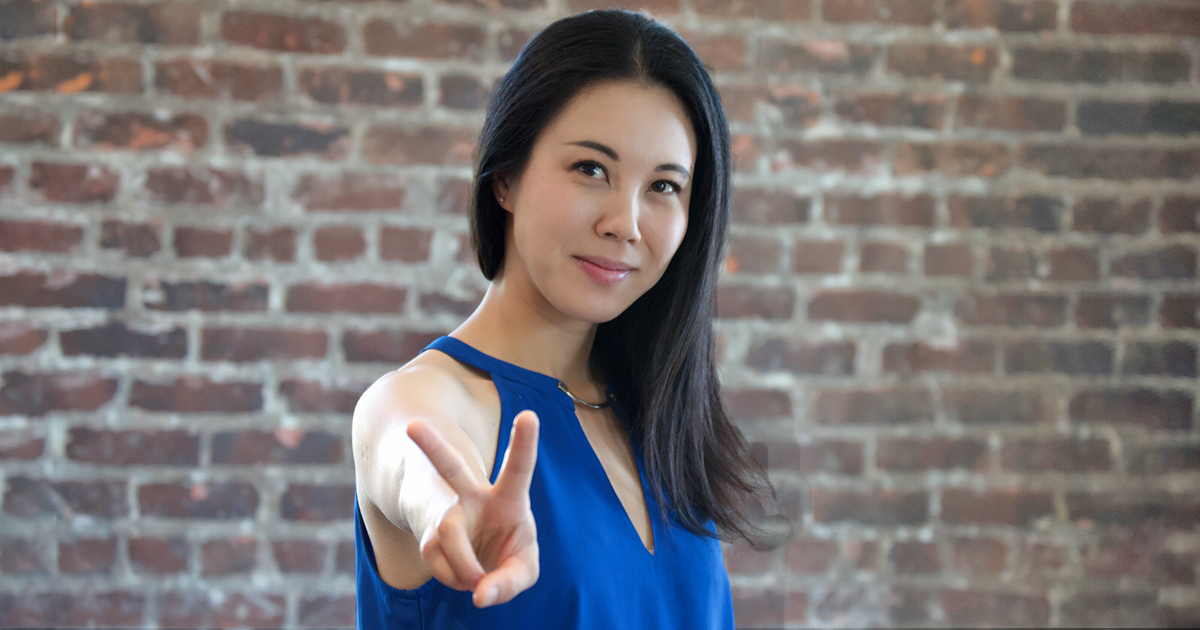All About Chika Inoue: Life as a Classical Saxophonist, Her Guitar Duo, and Working with the L.A. Philharmonic
Date Posted: July 25, 2019

Chika Inoue is a Vandoren Artist-Clinician. The goal for the Vandoren Artist-Clinician program is to enhance the quality of the music experience through education and the assistance of Vandoren. These highly trained professional educators and performers will engage your students through educational and fun sessions. The clinics they conduct cover a broad spectrum of topics and, based on your input, can be customized to fit the needs of your students. Contact us today to arrange your free Vandoren clinic.
What inspired you to pursue a career in music?
I just simply liked music. But to be honest, liking music and making a career out of music are two separate things. I am extremely lucky to have had (and still do!) so many great teachers, mentors and musicians who I could look up to, and many wonderful people, including my parents, who constantly supports me with what I like doing.
Growing up in three different countries (Japan, Germany and the USA), I have always found that music is able to move people and could share ideas and feelings regardless of the language, background or cultural differences. I think I knew from a very young age that music is something that adds color to life and I wanted to be immersed in that creative process.
Have you noticed differences in performance and education practices during your time in Germany, Japan, and the United States?
I was born in Japan and started classical piano when I was four years old in Germany. My teacher I had for the first five years trained me rigorously with fixed-Do solfege singing and that continues to have a great impact on my playing and teaching. Not only did she make me sing the entire piece on solfege in correct pitches, but I would have to sing the melody line as I played the piece. Even today, most of the time unless in extreme circumstances, I sing my phrases out loud or in my head in the tempo that I play in. If I can sing it, I can play it. I find this singing process useful in understanding the phrasing in conjunction with the accompanied or collaborated parts, and helpful when I have to memorize a piece.
I continued playing the piano wherever I moved but joining the marching band during high school in San Diego is what got me into the saxophone. As I was never trained in jazz, I gravitated towards playing more classical style on the saxophone, not really knowing that the genre is still uncommon. Even though I have had so many years of piano training, I have realized that bringing music to life with the saxophone resonated with me the best, perhaps because it sounds very close to singing of the human voice.
"...I have realized that bringing music to life with the saxophone resonated with me the best..." - Chika Inoue
With original repertoire for saxophone constantly growing why do you choose to transcribe works for other instruments?
Don't get me wrong, I do enjoy original repertoire for the saxophone and cherish many new music that is written for the saxophone. Although, I find that there are way too many people, even the classical music listeners, who have never heard of the saxophone being played in the "classical" sound. As the saxophone is much of an iconic instrument in jazz, many people associate saxophone with the jazz sound. It is my absolute pleasure to have listeners hear the different color and dimension of the saxophone that is capable in classical playing. In order to invite new listeners, I believe that a transcribed work bridges what they know and what they don’t know and facilitates the introduction to a new perspective.
On another note, it is often not easy to adopt the color, nuance, and phrasing of the original work in a transcribed music. My biggest challenge is to understand and replicate the works of the original, at the same time finding ways to showcase the beauty of the classical saxophone.
Can you describe your experience working with the LA Philharmonic? Do you believe saxophone will have a larger role in orchestras in the future?
Working with the LA Philharmonic is absolutely exciting! And to be able to be a part of their centennial season this year has been a lot of fun. A lot of times saxophone in orchestral work is treated like a solo instrument, so you are required to be courageous and sing out your part. But at the same time, you also must be sensitive about blending with the ensemble as if you have been part of them all the time.
Absolutely! YES, I believe the saxophone will gain a larger role in orchestras in the future! In fact, I see more and more contemporary composers including saxophone in their orchestration and I look forward to seeing more to come!
What advice would you give to aspiring saxophone performers?
Keep playing (Love what you do)
Listen to as many different kinds of music as possible (Open your ears)
Play with as many musicians as possible (Be sensitive)
Play for as many audiences as possible (Surprise them!)
What is your setup?
My alto saxophone is Selmer Paris Series III, mouthpiece is Optimum AL5 with Pink Gold M|O ligature, and Traditional size 3 reeds.
My soprano saxophone is Selmer Paris Series II, mouthpiece is Optimum SL3 with Optimum ligature or Pink Gold M|O ligature, and V21 size 3.5 reeds.
I also have lefreQue sound bridge attached on both instruments.